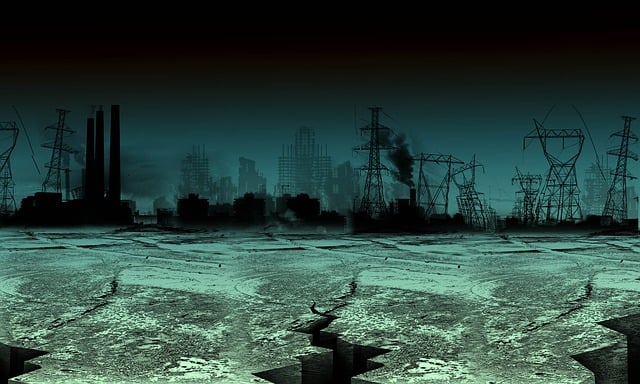The Rise of Artificial Intelligence: A Glimpse into the Future
Artificial Intelligence (AI) is a rapidly evolving field that is transforming the way we live and work.
Experts say that the consequences of powerful AI will not be so much like a nuclear bomb, but rather a creeping degradation of society.

An article published in The Guardian has highlighted worries regarding the possible risks associated with artificial intelligence. The technology, which was initially celebrated for its advancements in natural language processing, is now raising alarms about a potential catastrophic outcome.
Experts caution that the rapid expansion of artificial intelligence, accompanied by its unparalleled capabilities, has the potential to result in unforeseen repercussions. One major concern revolves around the AI model's capacity to produce responses that closely resemble human language, coupled with its extensive database of information, making it susceptible to misuse. Dr. Samantha Anderson, an AI ethicist, cautions that the line differentiating humans from machines is progressively becoming less distinct.
A major apprehension revolves around the potential misapplication of AI for disseminating disinformation and propaganda. With its adeptness at generating convincing dialogues, the AI model can easily deceive users, exacerbating the issue of fake news. Professor Michael Brown, a renowned researcher in artificial intelligence, cautions that we are venturing into treacherous territory, as AI's persuasive capabilities make it a potent tool in the wrong hands.
Another pressing concern is the lack of accountability associated with artificial intelligence systems like ChatGPT. Allocating responsibility for malicious actions becomes challenging. Dr. Laura Mitchell, an AI policy expert, insists on the establishment of clear guidelines and regulations to ensure the ethical utilization of these technologies.
There has been a persistent worry regarding the significant displacement of jobs due to digital automation. Various studies present differing perspectives, with some predicting that AI could replace approximately 85 million jobs worldwide by 2025, and even surpass 300 million jobs in the long run.
The impact of AI extends across diverse industries, affecting professions ranging from screenwriters to data scientists. AI has demonstrated remarkable achievements, such as achieving equivalent scores to real lawyers on the bar exam and providing better answers to health-related questions than actual doctors.
Experts are expressing concerns about the substantial loss of employment opportunities and the potential political instability that may accompany the relentless ascent of artificial intelligence.
However, it is crucial to acknowledge that not all experts share identical concerns. Some argue that worries surrounding AI are overstated. Dr. David Peterson, an advocate of AI, emphasizes the importance of recognizing the positive impact of AI in industries like healthcare and transportation. He suggests that striking a balance between caution and leveraging the potential benefits is essential.
As the debate continues, researchers are actively working on establishing robust safeguards and ethical frameworks for artificial intelligence systems. OpenAI, the organization responsible for ChatGPT, has implemented stringent guidelines and ongoing monitoring to address this issue.
"I truly believe that the current generation of AI technologies we have encountered has the potential to unlock tremendous human flourishing on a scale not witnessed in the past 100 or 200 years," says Wang, expressing optimism about its positive impact. However, Wang also acknowledges the potential downsides, drawing attention to the impact of social media on society and culture.
The future of artificial intelligence remains uncertain, and with technological advancements, new challenges arise. Striking the right balance between innovation and responsibility is of utmost importance. Dr. Anderson aptly emphasizes the need to ensure that AI serves humanity rather than endangering it.